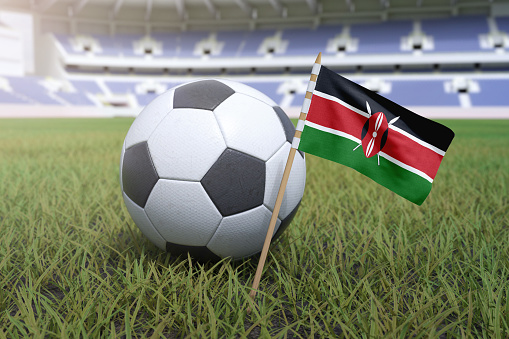Kenya’s copyright legislation is up for revision. The proposed amendments aim to boost the percentage of revenue that goes to content creators like musicians.
They have, however, raised concerns by attempting to prevent copyright owners from removing unlicensed creative content from online platforms. This could allow pirate broadcasters to operate without having to pay for creative content. Moni Wekesa, a law and sports expert, explains why the amendments are ineffective.
What does the copyright law say?
The Copyright Act currently protects “mental creations.” Literary works (books, journals, or any other form of writing); artistic works (sculpture, photography, and the like); and music and music performances and broadcasts are examples of such creations.
The goal of this law is to provide protection to creators of “copyrightable” materials so that they can profit from their work. To this end, the law provides protection to rights holders for a variety of time periods. Anyone who tries to obtain, transmit, or rebroadcast protected material is said to be infringing. The law stipulates a number of penalties.
This includes internet service providers who are permitted to transmit or temporarily store protected material, such as live sporting events. They are not allowed to change or tamper with it in any way. Their function is restricted to sending data from one location to another or temporarily storing it.
A license is required to broadcast such material. The national or international sports organization – such as FIFA or the International Olympic Committee – issues this license. Advertisement revenue and on-licensing to other outlets are two ways for rights holders to make money.
“Pirates” are those who distribute content without a license. The current Kenyan law allows a rights owner to request that infringing material be “taken down” by an internet service provider. The term “takedown” refers to the fact that the offending material will no longer be accessible to the intended audience or recipients.
What are the changes proposed to the law?
The modification Bill has a couple of ideas. The first aims to boost the percentage of revenue that creators receive from copyrightable products like music. Many musicians have previously complained about middlemen – producers and other entities who collect royalties on their behalf – exploiting them.
They have been paid as little as 20% of the profits from their work in some cases. The bill now proposes capping the earnings of creators at around 57 percent of total earnings. As a result, musicians and other artists will be able to earn more money.
The second major change aims to eliminate legal provisions that allow a rights holder to prevent piracy (theft) of their work. The repeal of these sections would make it more difficult for content creators to monitor and enforce anti-piracy sanctions. This proposal also undoes the first proposal’s good intentions, which were to increase the revenue share to rights holders.
Section 35C requires an internet service provider to work with law enforcement agencies to track down the source of illegal materials. Copyright infringement will be discouraged as a result of this.
A person whose copyright is being infringed can seek court orders against an internet service provider under Section 35D. The court may order the internet service provider to stop enabling infringement, disable access to the infringing material, or stop allowing users to use its service. These laws, along with Section 35B, were enacted to combat “pirates” in the digital realm. They are providing excellent service to rights holders.
Nonetheless, the bill proposes to alter them. The amendments are intended to “remove ambiguity in the role of internet service provider,” according to the document. It’s also to bring the Act in line with the law, as there are already legal remedies in place.”
There is no ambiguity in my opinion. When read together with the rest of the Copyright Act, the three sections form a composite of measures that a rights holder can use to combat a copyright infringer.
Why should the proposed changes worry sporting organizations?
Broadcasting rights are a financial lifeline for national and international sports organizations. Some of this money is then plowed back into sports development. Broadcasting revenue is also used to fund international meetings in the form of air tickets, accommodation, and uniforms.
These organizations charge a fee to select broadcasters to broadcast their events. The Olympics, for example, could cost up to $100 million to broadcast. A Kenyan broadcaster can purchase a partial license to broadcast the Olympics only in Kenya. After spending an estimated $800,000 on advertising to Kenyans, such a broadcaster will try to make a profit. Through local advertising, the license holder can make three to four times the cost of the partial license. Broadcasters profit from broadcasting sporting events in this way.
Some of the events are broadcast late at night when the majority of the population is sleeping. Pirate broadcasters can scavenge live broadcasts by recording them and storing them for later rebroadcasting. They’ll also look for ways to profit from local advertisements. Such piracy interferes with the main licensee’s advertising revenue and profits.
Piracy has a wide range of consequences. To begin with, the local license holder will lose revenue and, as a result, motivation to purchase a license in the future. If this occurs in a number of countries, the international sports organizer will eventually lose out. As a result, national sports organizations will not receive any funding from international organizations. Sports development may be hampered in the long run.
At the local level, there will be no incentive to participate in sports. Athletes will not earn anything or contribute to the economy. The proposed amendments put sportspeople, legitimate broadcasters, rights holders, and sporting bodies at risk of exploitation by pirates.
You can see a list of International IP firms here.
You can see the list of Kenya IP firms here.

